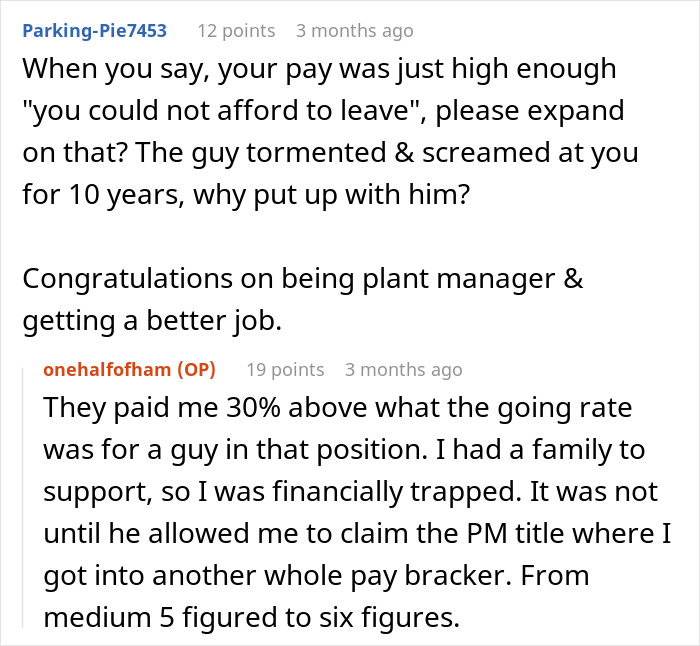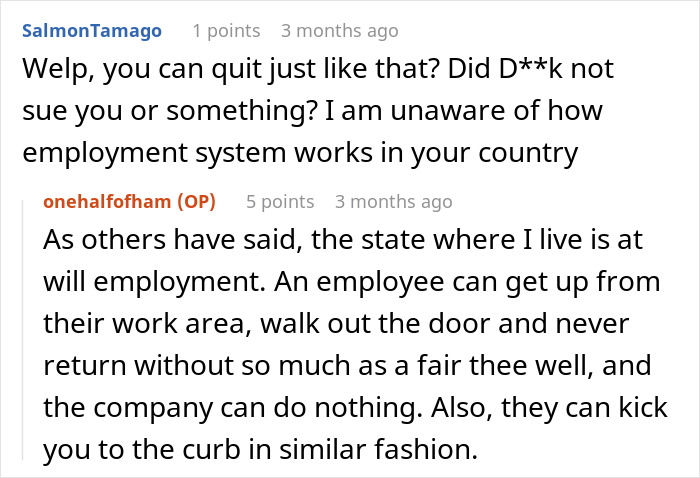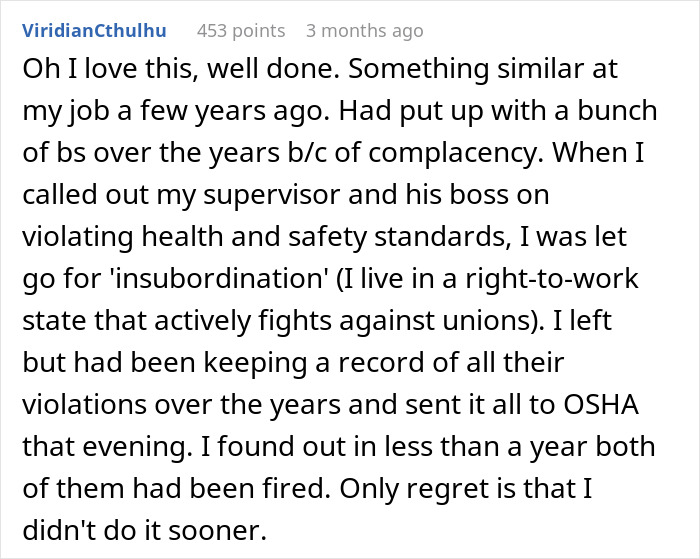If yourjobhas been sucking the soul out of you for a decade, it’s probably time to move on.
And maybe, just maybe, take the whole place down on your way out—just like thisRedditordid. After years of enduring, in his own words, “the absolute worst” boss, he finally scored a new position with better pay and real benefits. But before leaving, he made sure to get revenge for all the abuse—one final move that landed his ex-boss with a six-figure fine and a jail sentence.
Read the full story below.
RELATED:
After years of enduring, in his own words, “the absolute worst” boss, the man scored a new job

Image credits:Getty Images (not the actual photo)
But before walking out the door, he made sure to get his revenge

Image credits:onehalfofham
Almost a third of employees expect “revenge quitting” to happen in their workplace in 2025

Meanwhile, 17% admitted they’ve already done it in the past, and 4% say they’re planning to quit this way in 2025—having wanted to leave their current job for over a year, on average.
But while some are eager to make a bold departure, others feel stuck. 27% of employees say they can’t leave their jobs due to economic or external factors, with workers in government (33%), retail (31%), and marketing/advertising (31%) feeling the most trapped.
Why are so many employees ready to walk out?

The short answer? They’re unhappy. The long answer? There’s a growing list of reasons pushing employees to their breaking point.
Gallupreports that U.S. employee engagement has hit a 10-year low, and as Bryan Robinson, Ph.D., author ofChained to the Desk in a Hybrid World,explains, revenge quitting is becoming a way for workers to push back against big business. Employees now have more job options, and when faced withtoxic workplaces, unfair policies, or burnout, they’re choosing to walk away.
Robinsonspokewith John Scott, head of learning design and strategy at MasterClass at Work, who outlined four signs that an employee might be on the verge of revenge quitting:
However, companies do have ways to turn things around. Many employees said they’d be more likely to stay if they were offered incentives like a four-day workweek, which 33% said would make a difference. The same percentage said performance-based bonuses would keep them from leaving, while 28% pointed to more paid time off as a key motivator.
At the end of the day, if businesses want to avoid high turnover and keep employees engaged, the solution is simple—invest in their happiness or pay the price.
Readers relished every second of the downfall












Thanks! Check out the results:You May Like"It Just… Dawned On Her": Guy Learns A Valuable Lesson After Refusing To Care For NeighborsShelly FourerHotel Room Neighbors Ignore Noise Complaints, Instantly Regret It In The MorningJustinas KeturkaMan Cancels A Couple’s Valentine’s Dinner After They Used His Number For ReservationsGabija Saveiskyte
Shelly Fourer
Justinas Keturka
Gabija Saveiskyte
Social Issues